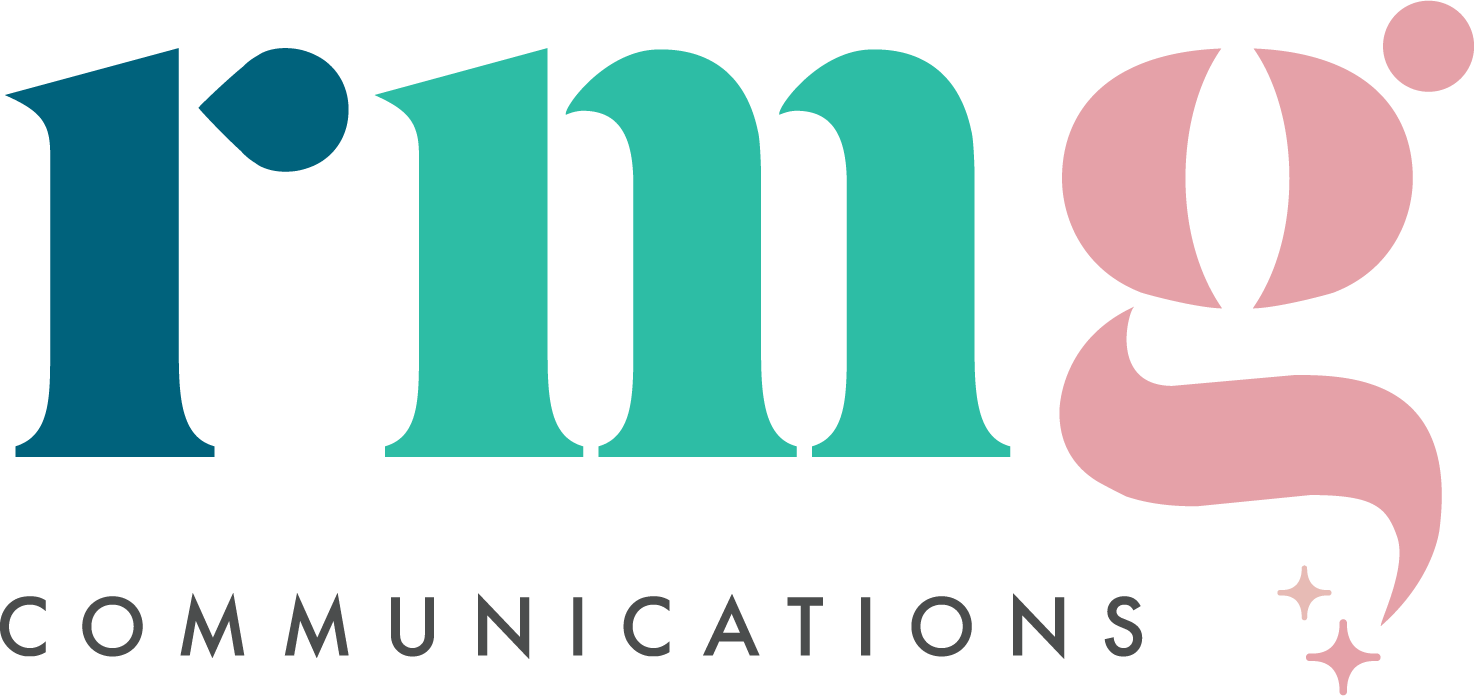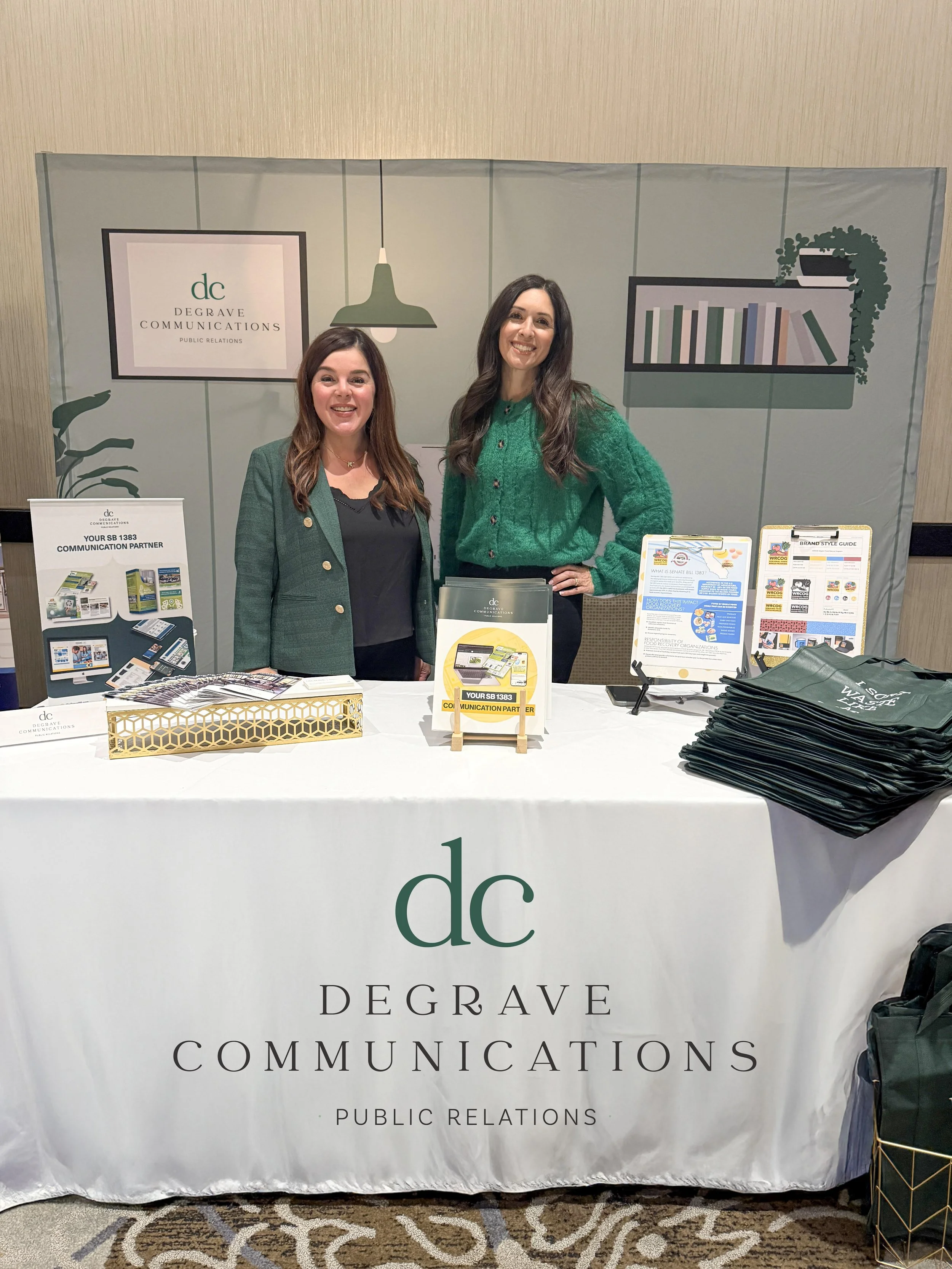Sort Waste Like a Boss
By Rachel Dickman, MBA, APR, Founder and CEO, RMG Communications and Liselle DeGrave, APR, President and Founder, DeGrave Communications
Talking Trash - SCWMF Annual Conference & Exhibit
The DeGrave Communications crew, with team RMG Communications, rolled into the Southern California Waste Management Forum (SCWMF) Annual Conference and Exhibit with swag in hand, serving as a reminder of why outreach truly is a game-changer in waste management.
Why we showed up (spoiler: it matters)
We’ve built a strong track record working with municipal agencies, public-sector clients and sustainability-focused partners. Outreach and communications are at the heart of what we do: helping cities, counties and governmental entities engage their communities, shift behaviors and meet regulations.
So when SCWMF invited vendors and exhibitors to get in the mix of waste-management pros, tech innovators, regulatory leaders and municipal decision-makers, we knew we had to be there.
From SB 1383 lessons learned to disposal-capacity planning to AI in the materials value chain, the conference agenda was both timely and packed with insights.
What we did on the floor
Set up our booth in the exhibitor showcase and spent the rest of the day connecting: chatting with city sustainability managers, trash-haul vendors, policy wonks and tech-startup folks.
Shared how we support municipalities with behavior-change outreach, community education campaigns, social media / digital strategies and stakeholder engagement, all of it critical when agencies are working under tight timelines to comply with legislation like SB 1383 and SB 54.
Listened to powerhouse presentations on emerging regulations (Session 1), disposal capacity challenges (Session 3), and how AI is changing how we collect, process and think about “waste” as a resource.
Networked hard. Because in this space, outreach is real-world connections, partnerships with haulers, municipalities and nonprofits, and bridging the gap between policy and practice.
Why outreach is not optional
In the waste & recycling world, technical solutions are important: new trucks, new sorting equipment, new apps. But those tools only work if the people in the community and the agencies on the ground are aligned. That’s where outreach, messaging and translation come in.
Municipal agencies can craft the best organics-recovery program in the world, but if residents don’t know what goes into what bin or haulers don’t have buy-in, the program risks falling short.
Regulations like SB 1383 (organics diversion) and SB 54 (recycling) mean agencies are under pressure. Outreach helps reduce confusion, boost participation, and ultimately make those regulatory mandates work in practice.
Conferences like SCWMF remind everyone: this is a team sport. Vendors, municipalities, consultants, tech companies, outreach specialists, everyone has a role. We love playing that role.
Take-aways we’re bringing home
Behavior beats tech (if no one uses it): The best systems won’t deliver unless people know, care and act.
Messaging = momentum: Clear, consistent outreach helps agencies keep compliance deadlines from feeling like insurmountable “regulations” and instead make them feel like community wins.
Networks matter: As municipalities move faster into organics recovery, landfill diversion and circular-economy thinking, they need communications partners who know local government culture, and that’s where we shine.
The waste-management world is changing fast: From AI in sorting to new legislative pushes, it pays to be plugged in. Being on the floor at SCWMF gave us fresh ideas we’ll bring to our clients.
Wrap-up
So yes, we sort waste like a boss. But more importantly, we communicate waste like a partner. We help municipal agencies make sense of the regulatory storm, engage their residents, and get meaningful results. Our day at SCWMF reaffirmed that mission.
If your agency is gearing up for outreach around organics recovery, recycling programs, or community engagement, let’s talk. Because when change hits fast, the right message hits harder.
Here’s to making non-glamorous things (like waste) feel purposeful, strategic and yes, kinda cool. Let’s talk trash!

